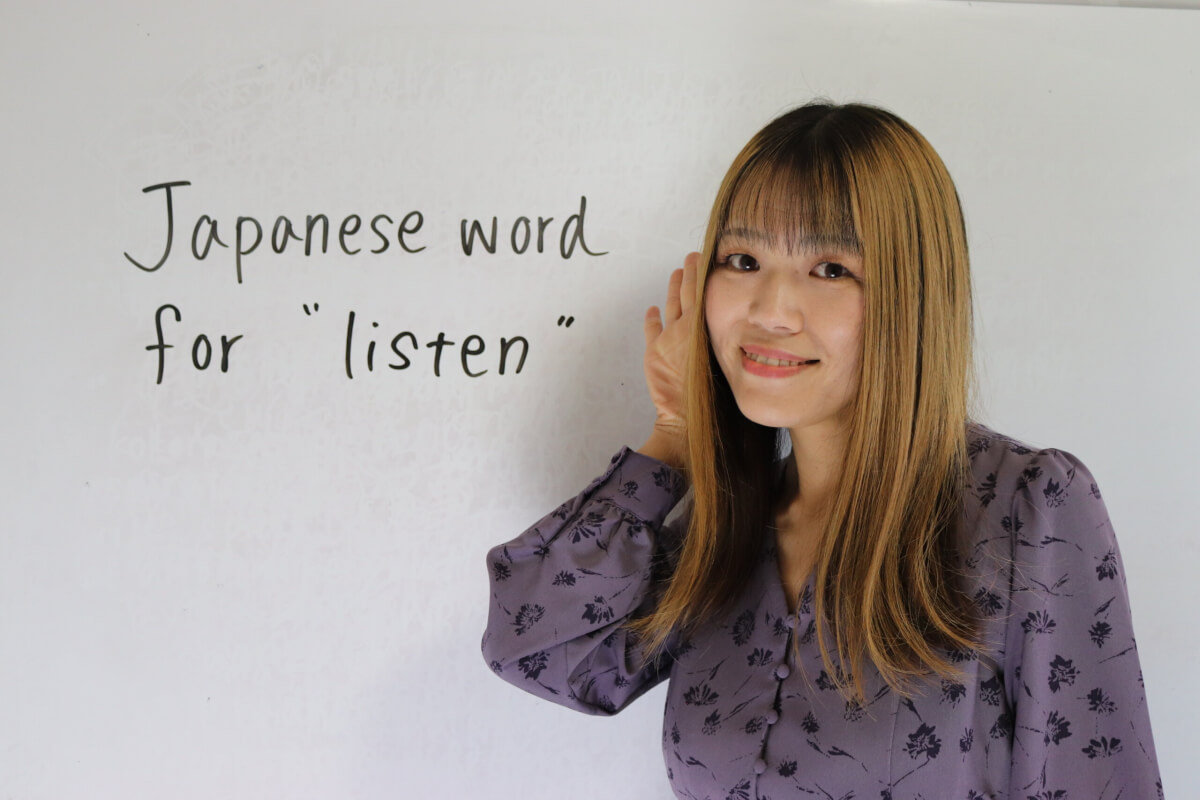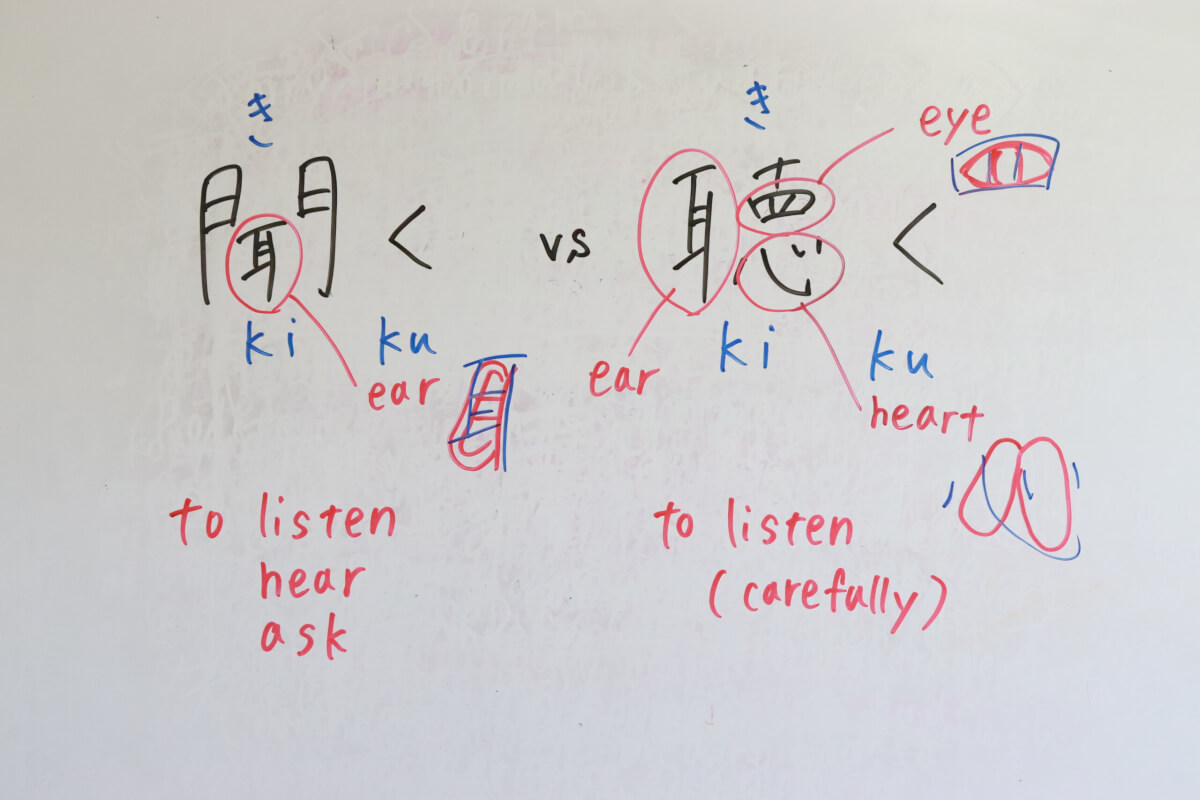- Release Date:
Japanese word for listen

In Japanese, the word for "listen" can be written in two different ways: 聞く (きく /kiku/) and 聴く (きく /kiku/). While both are pronounced the same way and generally mean "to listen," they are used in different contexts and convey subtle nuances. Let’s dive into the differences between the two.
聞く (きく /kiku/)
聞く is the more commonly used Kanji and can refer to various forms of listening or hearing. It is broader in meaning and can also mean "to hear" or "to ask." This kanji focuses more on the act of hearing sounds or information without necessarily implying a deep focus or attention.
Common uses:
- 音を聞く (おとをきく /oto o kiku/) – to hear a sound
- 先生に聞く (せんせいにきく /sensei ni kiku/) – to ask the teacher
- ニュースを聞く (ニュースをきく /nyu-su o kiku/) – to hear the news
In these examples, 聞く refers to more passive or surface-level listening or hearing. It could be something you overhear, or it could be used when you ask for information.
聴く (きく /kiku/)

On the other hand, 聴く(きく /kiku/) implies a more attentive, focused form of listening. It’s used when you are listening to something carefully or with intent, such as music or someone’s speech.
The Kanji contains the radical for "ear" (耳), but also includes the character "目" (eye) and "心" (heart), suggesting the idea of listening with both your ears and heart.
Common uses:
- 音楽を聴く (おんがくをきく /ongaku o kiku/) – to listen to music
- スピーチを聴く (スピーチをきく /supi-chi o kiku/) – to listen to a speech
In these cases, 聴く(きく /kiku/) shows that the listener is giving their full attention to what they are hearing, often appreciating or trying to understand it deeply.
Summary of Differences of 聞く (きく) 聴く (きく)
Though both 聞く(きく /kiku/) and 聴く(きく /kiku/) mean "to listen," knowing when to use each kanji can help you express different levels of attention or involvement in what you’re listening to.
If you’re casually listening to or hearing something, use 聞く(きく /kiku/). When you want to show that you’re listening with focus or intention, opt for 聴く(きく /kiku/).
By mastering these subtle differences, you’ll not only improve your Japanese skills but also show a deeper understanding of the language’s nuances.
